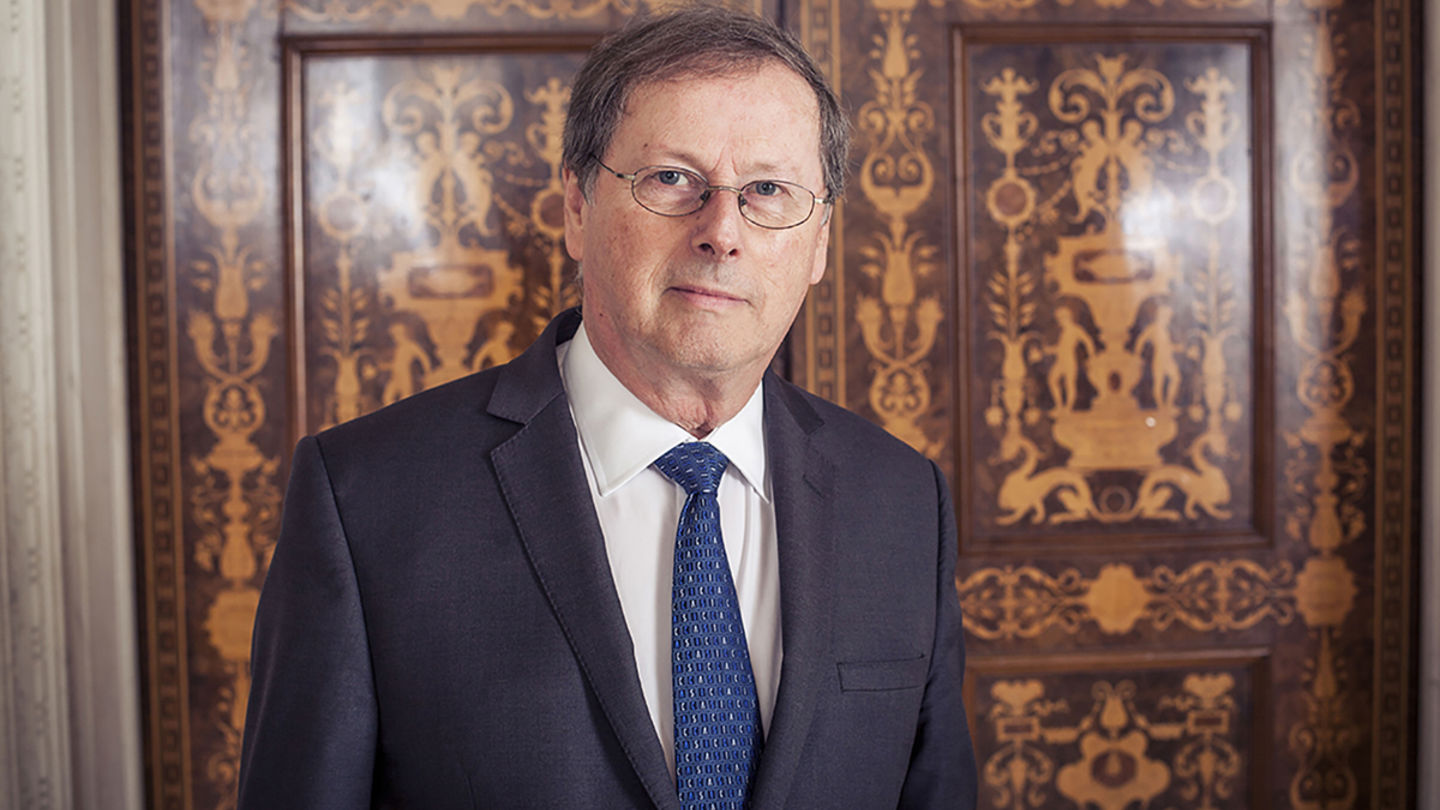
The College of Science and Technology and Temple Materials Institute are pleased to host the 2022 Sheikh Saud Lecture on Advanced Materials featuring Sir Anthony K. Cheetham, FRS, a leader in the materials chemistry community and renowned for his contributions to the development of procedures to study the structures of materials and deduce their chemical, mechanical and physical properties.
Chemical Synthesis and Materials Discovery
Sir Anthony K. Cheetham, FRS
University of California, Santa Barbara and National University of Singapore
May 3, 2022
3:30 p.m.
Science Education and Research Center
Room 110
Tony Cheetham is a Research Professor at the University of California, Santa Barbara (UCSB) and a Distinguished Visiting Professor at the National University of Singapore. He was formerly the Goldsmiths' Professor of Materials Science at the University of Cambridge (2007-2017) and the Treasurer and Vice-President of the Royal Society (2012-2017). He obtained his D.Phil. at Oxford in 1972 and did post-doctoral work in the Materials Physics Division at Harwell. He joined the chemistry faculty at Oxford in 1974, and then moved to UCSB in 1991 to become Professor in the Materials Department. From 1992-2004 he was the Director of UCSB's Materials Research Laboratory.
He is a Fellow of the Royal Society and a member of American Academy of Arts and Sciences as well as several other national academies. He has received numerous awards for his work in the field of materials chemistry, including the Sômiya Award of the International Union of Materials Research Societies, the Platinum Medal of the Institute of Materials, Minerals & Mining and a Chemical Pioneer Award from the American Institute of Chemists. In January 2020 he was knighted by Queen Elizabeth II for "Services to Materials Chemistry, UK Science and Global Outreach."
Chemical Synthesis and Materials Discovery
The discovery of a new material with exciting functionality is often preceded by the synthesis of a new chemical compound on which the material is based. This sequence of events can happen in different ways and on different timescales. In rare cases, the discovery takes place serendipitously, as in the famous examples of Teflon (polytetrafluoroethylene, PTFE) and the Buckyball, C60. Occasionally, the materials discovery is based upon the use of design rules that are defined by previous work in the area and a clear material need.
For example, the development of important conducting polymers based on conjugated organic molecules stems from an original finding that polyacetylene was semiconducting and that the conductivity could be enhanced by doping with iodine. Variations on this theme ultimately led to the design of excellent conducting polymers for displays, sensors and other optoelectronic devices.
Most commonly, however, major materials discoveries arise from work on chemical compounds that were originally made out of curiosity or for an entirely different application. Important examples include TiNb2O7, a new anode for lithium ion batteries, which we and others studied almost 50 years ago for entirely different reasons. An even more striking case concerns the perovskite, CsPbX3 (X = Cl, Br, I), which has been known since 1893.
It has very interesting optical properties but suffers from chemical and structural instability. Very recently, we were able to stabilize the photoluminescent phase by forming a composite with a metal-organic framework glass that we made out of curiosity just a few years ago, never imagining that it might be used for such an exciting application.
The Sheikh Saud Lecture on Advanced Materials is named for H.H. Sheikh Saud Bin Saqr Al Qasimi, United Arab Emirates Supreme Council Member and Ruler of Ras Al Khaimah. The Sheikh Saud bin Saqr Al Qasimi Foundation for Policy Research was established in 2009 to aid in the social, cultural, and economic development of Ras Al Khaimah, a northern emirate in the United Arab Emirates (UAE).
Sheikh Saud places great value on education and research, and the Al Qasimi Foundation was created to generate a world-class body of research on Ras Al Khaimah and the broader UAE region, develop local capacity in the public sector, and engage the community in its work. The Al Qasimi Foundation approaches its work collaboratively, and aims to establish relationships with talented scholars and world-class universities, innovative public policy research centers, established government institutions, and strategic partners in the private and non-governmental sectors.
